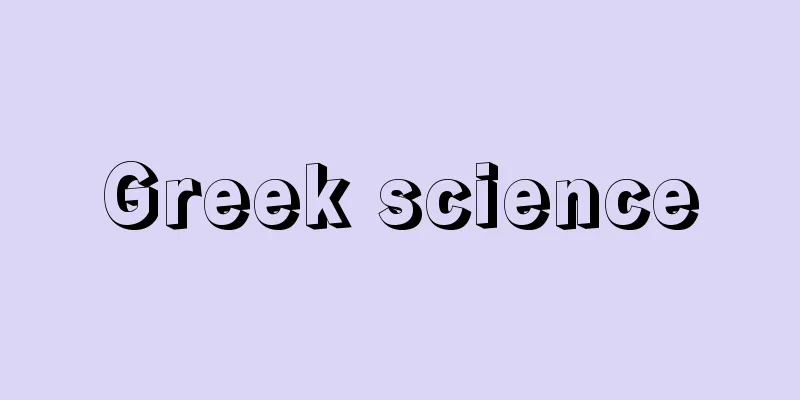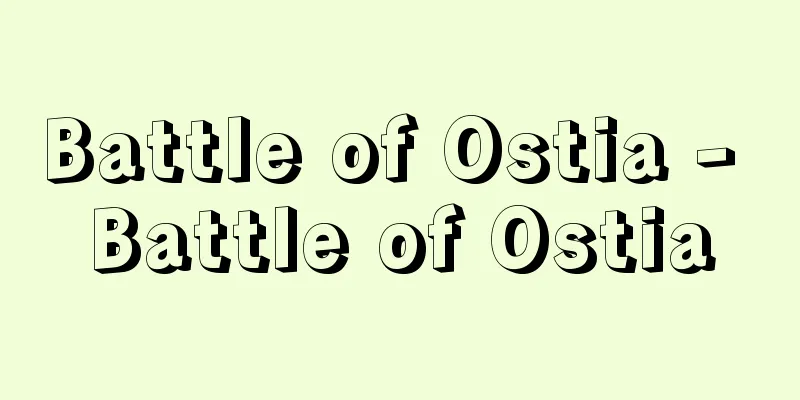Greek science

|
A general term for the sciences promoted and developed by the ancient Greeks. It has a history spanning almost 2,000 years, having been formed in the ancient Greek cultural sphere and passed down to Byzantium, Arabia, Medieval Europe, and the Renaissance. [The formation and development of Greek science] Ancient Greek science was born in the 6th century BCE in Ionia, a colony on the coast of Asia Minor. The colony bordered the more advanced civilizations of the Orient and absorbed many cultural legacies from there, but it also created a new form of knowledge that distinguished it from the Orient. Source: Heibonsha World Encyclopedia, 2nd Edition Information |
|
古代ギリシア人によって推進,展開された科学の総称。古代ギリシア文化圏において形成され,ビザンティン,アラビア,中世ヨーロッパおよびルネサンスへと伝承されたほぼ2000年にわたる歴史をもつ。 [ギリシア科学の形成と展開] 古代ギリシア科学は,前6世紀に小アジア沿岸の植民地イオニアに誕生した。ここはオリエントの先進文明圏に接しており,そこから多くの文化遺産を受け入れたが,オリエントとは一線を画する新たな知の形態がつくり出された。 出典 株式会社平凡社世界大百科事典 第2版について 情報 |
<<: Greek - Girishaago (English spelling)
>>: Greek War of Independence - Greek War of Independence
Recommend
Lion dance - Kioijishi
Kabuki dance. Tokiwazu. Original title: "Kab...
Nabena - Nabena
A biennial plant of the family Dipodium (APG clas...
Begging for forgiveness - Kikkosetsu
...The first thing that comes to mind in autumn i...
Obscene - Indecent
〘noun〙 (adjective) Something vulgar and lewd. Espe...
Kuya Nembutsu Dance - Kuya Nembutsu Dance
...It is said to have been started by the monk Ku...
Parasitic landlord
A landlord who rents out land to tenant farmers an...
Horikawa
[1] A river created by digging into the ground. An...
Windlass - Windlass (English spelling)
Also called an anchor windlass, this deck machine ...
Wood, J. (father) - Wood
…These British Palladian architects, father and s...
budget
In modern society, the lives of the people are cl...
congedo
…The number of lines in a stanza (generally 10-20...
Kreutzer, R.
...Tourto's modern bow, which is slightly cur...
Coral crab - Sangogani (English spelling)
This crab belongs to the order Decapoda of the cl...
Kushida Shin Ruins
<br /> The remains of a Jomon period settlem...
Northern worm - Northern worm
A worm of the family Echinodermata. It is found in...









